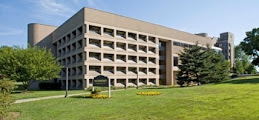Article titled Legal Holes by Professor Noa Ben-Asher, Professor of Law at Pace University School of Law is featured on the Legal Theory Blog.
Emergencies are flash points for debates about the nature of law. In the years that followed the event of September 11, 2001, a debate crystallized between those who think that "legal grey and black holes" - which I call "legal holes" - are necessary and integral to U.S. law and those who think that they are dangerous and should be abolished. This essay argues that the debate regarding the desirability of legal holes is not new. It reflects a deep historical conflict between two competing attitudes toward law. The first tends to view the legal order as a scientific-like system, and the second as a theistic-like system. The first seeks a wholeness and completeness of law through the abolition of legal holes, and the second views completeness as impossible and legal holes as necessary and even salutary. Under the first, the legal order can be viewed as a roll, and under the second, the legal order can be viewed as a bagel. By explaining the legal holes debate via the lens of science and theology, the essay offers two main insights. First, although the legal holes debate is often understood as simply about executive measures in emergencies, the debate should also be seen as implicating a broader jurisprudential dispute about the very nature of the legal system. Second, the two approaches bear several surprising similarities - their skepticism of judges, their skepticism of legislators, and, most notably, their use of law-preserving violence.
The article is published in Unbound (Harvard Journal of Legal Left), Vol. 5, Page 1, Winter 2009.






No comments:
Post a Comment